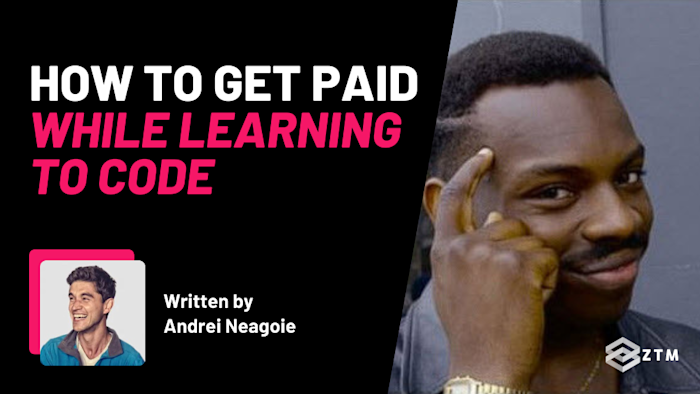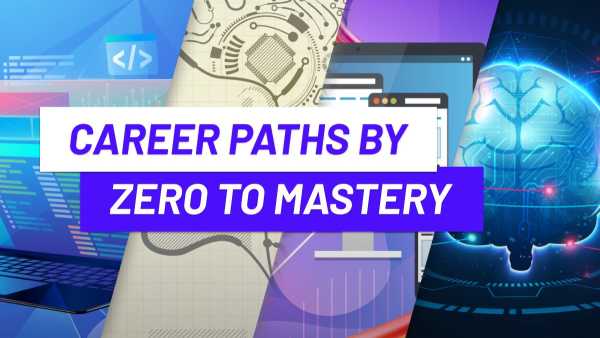Here at Zero To Mastery, we pride ourselves on giving you the best coding education that we can, along with the most efficient and quickest path of what you need to learn so that you can get hired asap.
It’s why we’ve had students get hired after just 4 months of learning to code, and why we also help you ace the coding interview and learn kick ass soft skills.
But what if you wanted to recoup or cover some of your learning costs as soon as possible?
In fact, what if you wanted to start getting paid for coding while still learning to code and before you even got that full-time job?
What if your goal is to dive into freelancing, start earning ASAP, and skip the full-time job route? Or what if you’ve already learned to code and have a job, but want to figure out a few ways to get paid even more while still learning and progressing, and not just by skilling up into a more senior role or language?
Well, that’s what we’re going to cover in today's guide, so let’s dive in!
But don’t I need to know ‘everything’ first before I can get paid to code? 🤔
Here’s the thing that stumps most smart people, but no, you don't need to know everything.
You see, when you’re an analytical person it’s easy to overthink and assume that you need to know everything about a topic before you start to charge for it or even talk about it.
Your brain thinks 20 steps ahead and comes up with excuses and roadblocks which stop you from taking action or worse, forms doubts about what you know you can do or what you think you’re worth.
It sucks but you can get past this if you keep these tips in mind:
The doubt never really goes away
Even experienced Developers and Engineers get imposter syndrome sometimes.
The trick is to do what you want to do anyway and trust in your ability to figure things out and take action regardless.
You don’t need to be the best at something or know it all before you get paid
Even as a paid and working Developer, you’ll still need to keep learning new updates, languages, and processes.

This means that you’ll:
Never stop learning
But also never know everything about a specific topic or language
Does that mean you can't get paid until you know it all?
Of course not! You can get paid for the level you're at now, then more when you skill up!
Top tip:
You will almost always feel like an imposter if you base your level of value or expertise on the amount that you know. Instead, frame it from the value you provide to the person (or company) and what you can achieve for them.
Are you saving them time or money or from having to learn to do it themselves?
This way you'll see that what you’re doing is valuable, regardless of how technical it is. A basic task for you may be something time-consuming or complicated for someone else, so don't devalue your current level.
Being able to figure things out is far more valuable than knowing everything in advance
A lot of coding is learning how to adapt and solve problems without knowing the answers. This is what FAANG level companies and others are looking for:
You don’t need to know everything because that’s impossible! Instead, focus on your ability to figure it out and your confidence will skyrocket.
Practice!
And finally, don’t forget that you’ll never get a better experience and learn faster than applying what you’re learning to a real-world environment! Using your current skills now to solve problems or build projects is a huge boost to connecting principles, and will shorten your learning curve and increase your earnings.
The beauty of this mindset is that you’ll stop feeling anxious and start believing in your abilities, especially once the cash starts coming in!
Sounds good?
Alright then, so let’s get into it!
10 ways to get paid while still learning to code (in 2026)
The following methods require varying levels of skill and experience. Some of them you can use now even if you’ve just started to learn to code, while others you can use as you’re getting going and are more experienced.
And some of them?
You can use them right now even if you've never written a line of code before - just like this first one!
#1. Get your current company to pay for it
What if you could get your current boss to pay you, while you learned to code - even if you have no coding experience so far?
That’s what Duaij did.

Dauij was a digital 2D drafter who managed to more than double his salary and got his boss to pay for him to learn to code.
Here’s how he did it:
"At my current job, there was a discussion about switching our database from a really old Access database to a SQL database. I wasn't really involved in the discussion, I just happened to be in the meeting where someone mentioned it in passing.
The quote my company got was $150,000 USD and I think it was a waterfall style project, where we wouldn't see a product until a year. (This is one of the reasons that I’m a fan of the agile/scrum style instead.)
Anyways, the money made my ears perk up because drafting is OK but you're not about to be financially free unless you're an architect or engineer or something, and so I pitched them on me learning to code as an internal team member instead, and they agreed!
That night I went home and looked up how to code, found all the recommendations for Python as a good language to start with, the power it has, yadda yadda.
I ended up reading Reddit and someone mentioned the ZTM Python course so I snagged it and got started.
In the beginning it was rough and I thought there was absolutely no way I could make this transition, but after getting through about 50% of the course I started messing around with my own projects".
Editor's note:
See how applying the skills in practice helps you learn and connect the dots easier?
Anyways, back to Dauij
"The company I work for is small and old school. Lots of paper, excel sheets with manual entry, etc. The first thing I did was create a GUI that would input data into excel in certain cells. Then I added additional excel sheets to this project. I think by the end of that one, what used to take someone an hour a day to do was reduced to 5 minutes.
Same thing with SQL, but this time I had more confidence. I was able to pull the information off the SQL server and put them on these excel sheets, taking my 5-minute project and truly automating it so that no one needed to be involved!
This project was enough for them to remove me from the drafter position and make me a database administrator (of which they had none at the time).
Since then, I have maintained our SQL database, created some more automation's, and moved the company to use more modern and efficient technologies.
The most interesting thing though was this: Not only did learning to program teach me languages, but it also taught me a different way of thinking
Not every problem needed a program, but my suggestions now came from a different place in my brain and applying myself differently.
Right now I'm working on a front end for the access to SQL migration with a small team of freelancers using React, which I’m also learning from ZTM.
I would like to state that one of the freelancers they have on retainer is a Senior Developer, so I'm not some sort of genius. If I got stuck I could either Google it or pick his brain, as he was a great resource to troubleshoot with.
My favorite part is that this was only 7 months ago, and I now make DOUBLE what I did as a drafter and have already had one poach attempt from a rival company".
Not bad right?
Duaij saw an opportunity to add value to his current employer and got them to pay for his education and for his time to learn during work hours - even though they are a small company.
I have to imagine that this single project alone saved them thousands of dollars, so it's win-win for both sides.
So what about your own job?
Are they currently looking to hire for coding roles?
Do they have an issue that you could solve for far less than what’s quoted if you learned to code?
Do they have an issue that you could fix and are not even aware of the time it takes or the money they could save?
Or could it be that simply having an internal coder who knows their business would be far more beneficial to them in the long run? (Learning to code is great, but it’s even better if you can get someone who also understands your business products and processes, so you may have more value than you think!)
#2. Or get a new company to pay for it!
If your current job isn’t hiring coders or willing to pay you to become one, then what about others?
There are a lot of companies out there that will take on beginner Software Developers who show they have potential now, and not just for internships but actual Junior Developer roles.
You can check out sites like GeektoGeek or Ziprecruiter, or check out our tech market monthly newsletter for updates on current industry careers and job postings.
Heck, there are some languages in certain industries such as Web3 and blockchain that are so in demand that they’re paying high 6 figures a year, and accepting people with less than a year's experience!
Simply go to the site and then filter by level of experience and pitch away!
#3. Apply for basic, paid freelancing tasks
A common misconception is that freelance work is mainly larger projects, consulting, or in-depth complex topics, but it’s not necessarily true.
You can often find people looking for something relatively simple to do for you at your current level of experience, but they lack the skillset or time to spend a few hours to learn, and so will pay for your help.
Sites like Freelancer or Fiverr are full of these types of opportunities, and sometimes they can just take 15-90 minutes to complete.
Do a few of those each week and you can easily earn some decent cash.
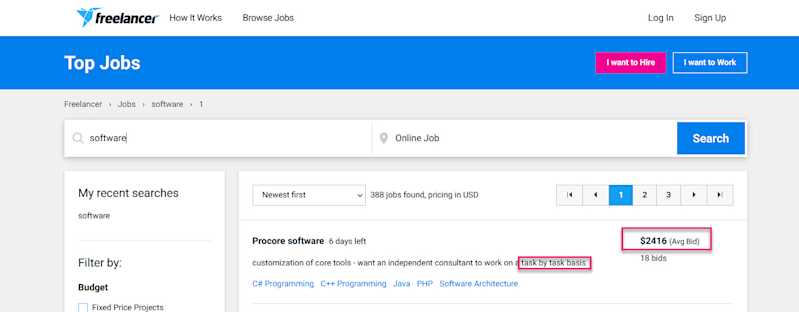
$2,500 per task is not bad!
If you can find a niche to focus on, you can even scale this up to 6 or 7 figures doing these odd jobs alone.
#4. Offer simple services
Once you have a little more confidence it’s incredibly easy to move up from random tasks as a freelancer, and offer set services instead.
What like?
Well if you have some early HTML or CSS experience then you can easily create custom email templates, or better yet, build copy and paste websites.
Here you can see one web developer on Fiverr who is focused on offering basic Wordpress site builds:
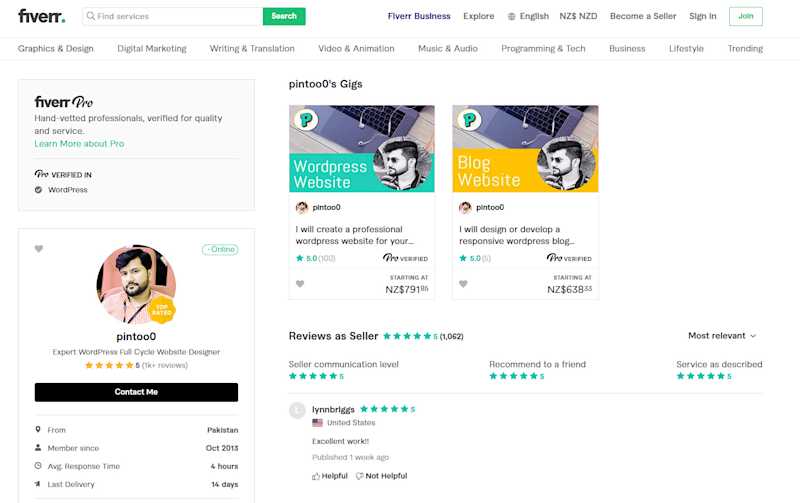
With 1,000’s of customers, $500 per site, and an average time to make a site of a couple of hours, then he’s doing incredibly well for a side hustle.
Heck, you could do one a day and then learn to code outside of that and be very comfortable - especially if you’re earning USD but living somewhere cheaper!
A lot of people get to this point and then never go into a developer job, simply for the lifestyle and convenience.
Editor's note
I have a friend who creates Shopify custom sites in HTML, but almost all of them follow a similar template:
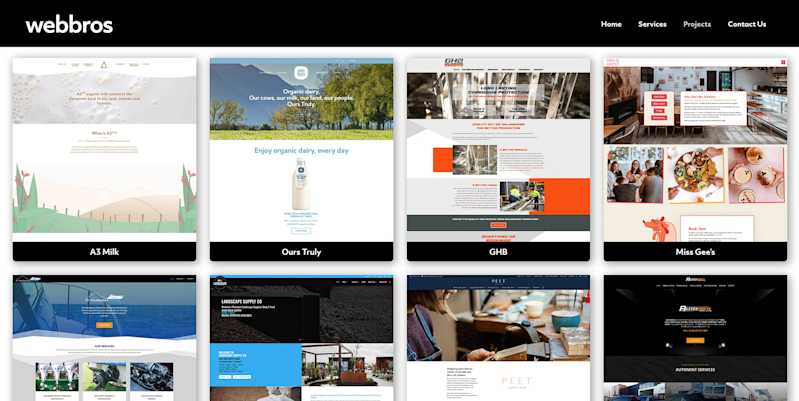
That’s not laziness on his part but simply him being smart and focusing on a specific customer base to niche down into.
Shopify appeals to e-commerce brands through its marketing and plugin builds so it’s an easy platform to focus on and get a similar customer each time.
And because around 90% of them want almost identical site designs, it means that the build time is very short, and yet they each pay anywhere from $6,000 - $10,000 per website.
Not bad for a few hours of work right?
If you did decide to build websites on the site, then you can even add in further complementary services to make more cash while you learn, such as ongoing updates or installs for a set monthly fee.
People will happily pay you to help them update plugins and backup files, meaning that you can charge a recurring fee for what is usually very little downtime.
One Web Developer in Australia did this and managed to scale to a few thousand recurring customers at $79 a month, before selling the platform to Godaddy!
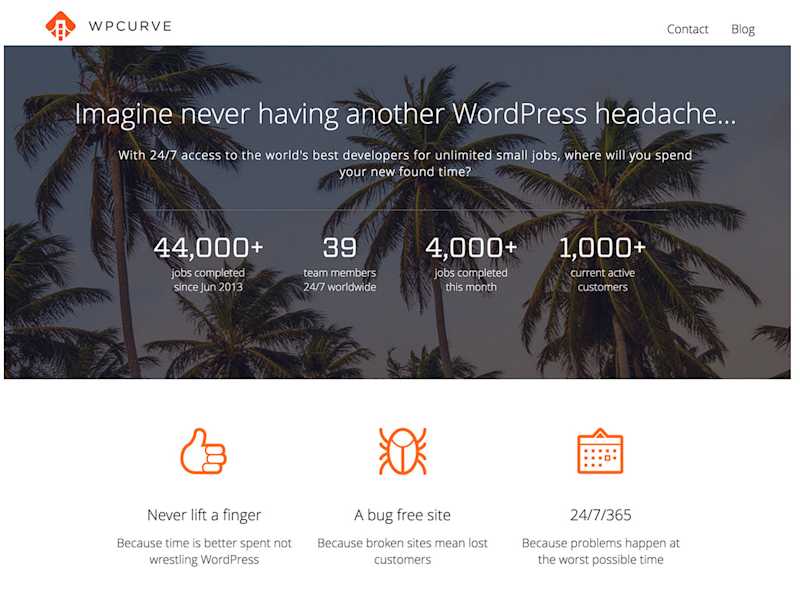
As you can see, offering services can be incredibly lucrative even with a basic understanding of coding.
#5. Get paid to find what’s broken
Sites like Immunefi, Bugcrowd and HackerOne pay freelancers who sign up with them a set fee to either find code errors and bring them to their customers' attention or to perform ethical hacking and find potential exploits and it pays very, very well.
For example
Expensify was offering $32,000 USD if you could figure out the cause of a mobile code issue and provide a solution, as well as $100,000+ in other bug bounties!
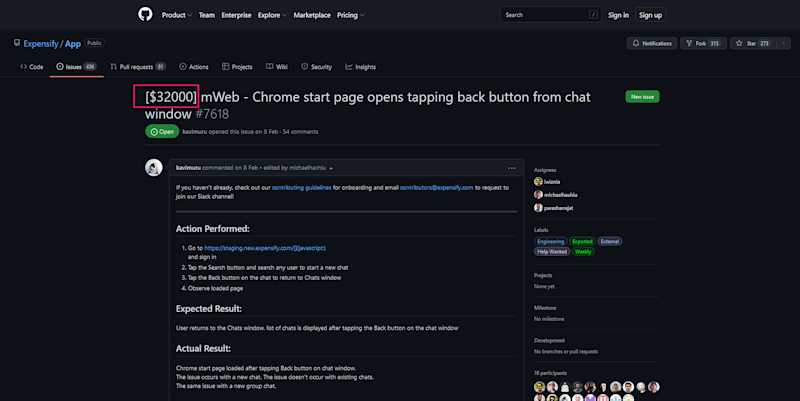
Oh, and we teach ethical hacking here at ZTM also 😉.
The good thing about this method is you can do it as and when you want to earn.
#6. Win cash and prizes for coding competitions
OK so even though this method isn’t a guaranteed way to earn cash while learning to code, it can still pay off.
Here's how it works:
Sites like HackerRank offer coding competitions that they organize with different software and engineering companies.
The companies give cash prizes to the person or teams who win, but this will often lead to job opportunities for people who show promise. (They use the competitions as a source pool for talent while also getting cheap press).
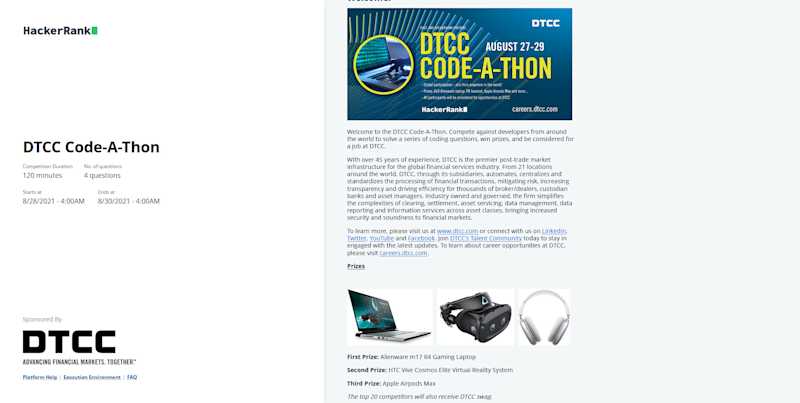
Now although you’re not guaranteed to win or get paid, this can lead to getting paid Programmer roles while you’re still learning. This means its worth looking into as a way of getting your foot in the door with companies who might not even be advertising roles.
#7. Get paid to tutor others
Here's another way to get some easy cash while also flexing your problem-solving skills by becoming a coding mentor!
Sites like Codementor offer a service where experienced coders can sign up, and then help students struggling with coding problems for a set fee.
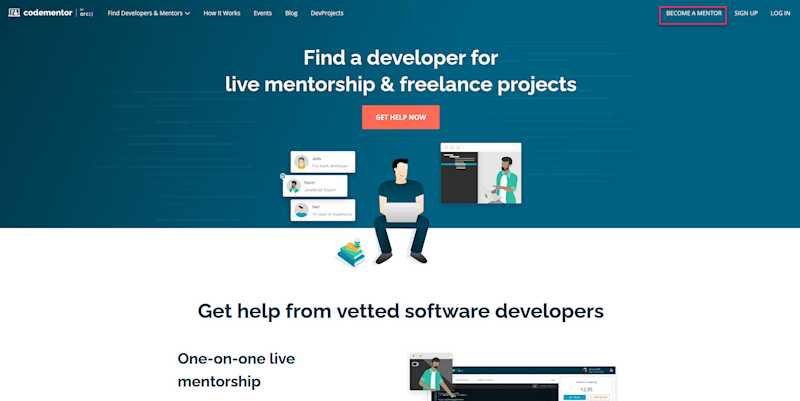
You don't need to be the most experienced in the world to apply for this. You just need to have enough experience to help solve the problem, so you can often get paid for just being a step ahead of the person you're helping!
You can practice these skills by helping fellow students as part of the ZTM Community Classroom on Discord:
#8. Fix issues you have in your own life and sell them
So this method can not only make you money but also remove a cost that you might have.
The process is simple:
Find an issue that you currently have and might already be paying for a solution
Solve it with code and save money
Sell it to others and make money
Here are 3 amazing examples of this.
Example #1. Forum fiascos
Some industries are notorious for never updating their software functions, and it gets to the point where entire industries can be built around a workaround to an issue that fixes something that the current manufacturer could easily solve, but just hasn't prioritized.
No joke, this can last for years and years and be very lucrative without even being a complex solution.
Editors note - Here's a personal story of this exact situation:
A few years back, I started using a forum plugin for my own membership platform on a WordPress site build.
The plugin costs around $300 and works well as a forum, but it wasn't perfect (and still isn't) and so there was an opportunity here for a savvy coder to solve a problem and get paid at the same time.
Annoyingly, I wasn't that person but someone else did solve it and made some pretty good cash.
So here's the issue:
The forum is mainly used as a community add-on for paid membership websites but there’s no direct single sign-on integration from the forum provider or the membership platform tool.
This means that if you get a new customer, rather than the software syncing and creating a forum account from the new customer's details, you have to manually create them separately and then send the login details to the customer.
This meant added steps for me and no syncing for the 2 platforms or the audience. If the customer joins or leaves, the forum account doesn’t change.
Even worse? If they’re logged into the course, they still need to manually log into the forum each time, which as you can guess, is quite frustrating 😤.
One developer was building their own forum and noticed this, and then coded a simple integration for their own use that would sync the 2 platforms, which probably took them a few days max to create.
So how can they make money with this?
Well, the forum and membership plugin still doesn't offer a syncing solution, even though they have thousands of customers and it would be fairly easy to code!
So the developer created a one-page website and started to sell this integration code for $75 with a $50 per year recurring fee for updates.
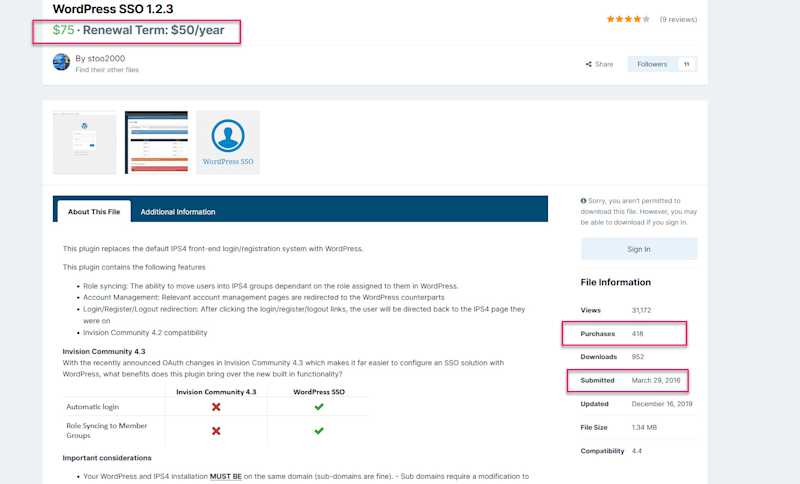
Simple right?
What's crazy is it's been 8 years now and they are still selling this code. (At my estimate they've made at least $40,000 USD for just a few days of work!)
They had a problem, solved it for themselves, and then monetized the solution for others.
Could you do something similar?
Example #2. If you do it more than once, build a template
Another friend of mine used to build custom WordPress websites and noticed that most customers wanted the same structure, so he eventually built a theme template that he could use again and again.
It makes sense right? Less time and effort for each new customer site that he built.
Well, he then took that theme, made a few versions of it, and sold them all on themeforest, netting him around 6 figures a year on semi-automation, while still in his 20's...
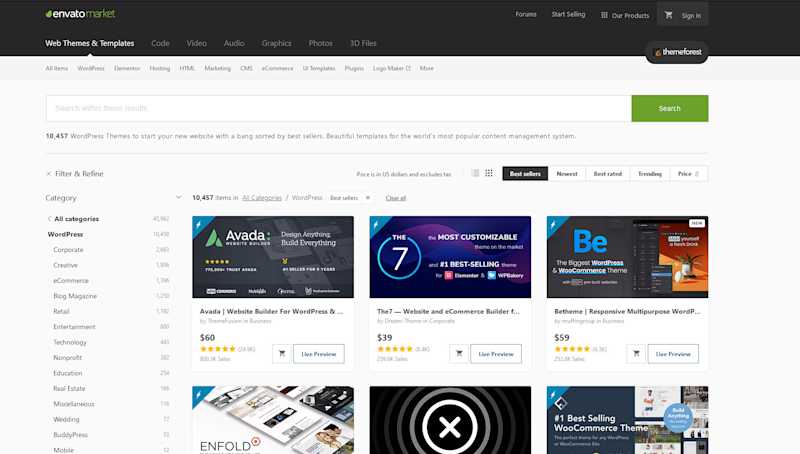
Just like the last example, he had a problem, he solved it, he templated it so he could save time, and then monetized it even further by offering it to others.
Example #3. When a self-made tool goes crazy… 🙉
Mailchimp is a huge email CRM that was acquired for $12 Billion dollars by Intuit.
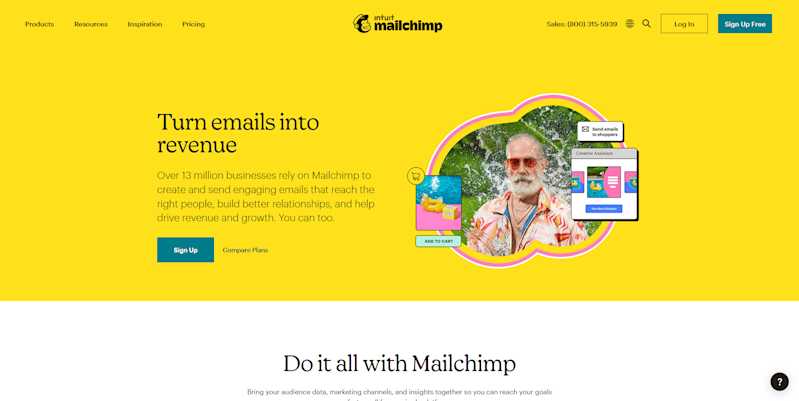
$12 Billion dollars!
But did you know that this entire tool started as a simple solution for a problem they had?
Back in 2001, the owners of Mailchimp operated a website design business but had some other coding skills.
The story goes that one of their website clients saw the self-made tool that the design agency was using in-house to automate their emails and wondered if they could get a copy to use also. (The tool was an updated version of a greetings message app they had built and failed to launch, and then rebuilt to send basic email automation's).
It stood out immediately with their audience because, at that time, almost all email CRMs were for Enterprise companies and extremely expensive.
They started offering this simple app to their website customers before offering it as a basic email CRM 5 years later in 2001. (No fancy design skills needed!)
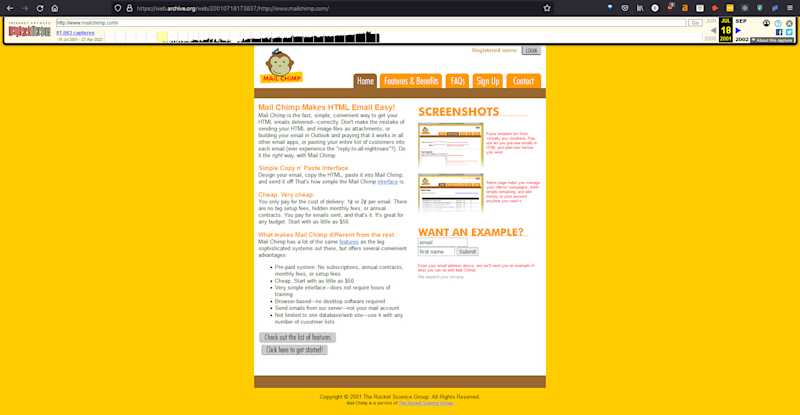
By 2017 they had scaled it to a staggering $525 million in revenue. Not stopping there, they then continued to add roughly $120 million in revenue per year for every year after that.
Not bad for coding a solution to their own problem eh?
So what can you make to solve a problem in your own life?
What can you automate and save cash?
Who else would buy it from you?
You'll be surprised at how many times this happens.
So what could you make?
You don't need to build an entire suite of tools or have a beautiful UX to make some extra cash solving problems like this. You just need to offer a solution that you can monetize on the side.
#9. Share your journey and monetize the audience
Another great way to learn is to share what it is that you’re learning as you learn it. It helps solidify ideas while also holding you accountable to get things done.
So why not share your own learning experience?
It's so easy nowadays to set up a blog or a YouTube channel, and the ROI can be quite substantial through either adverts, sponsorships, promoted posts, or affiliate links.
We even have an ambassador program here at ZTM that you can join that will pay you a recurring amount for each new member that joins via your link.
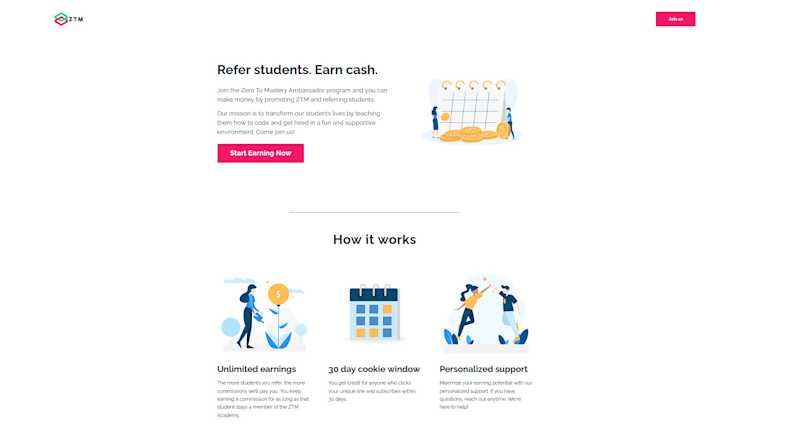
It's easy to share what you learned and add a link to where you learned it and boom - recurring income!
And as a bonus? Once you get experience in creating good content for your own platform you can be paid to do the same for others.
Some sites or channels will happily pay $500-$3000+ for an article or video, so the skills you learn can be monetized in multiple ways.
#10. Teach what you know
If you have experience and advanced skills or processes, then why not share them and get paid?
Here at Zero To Mastery, we’re always inviting industry experts to share their knowledge and become teachers - even if they’ve never taught before!
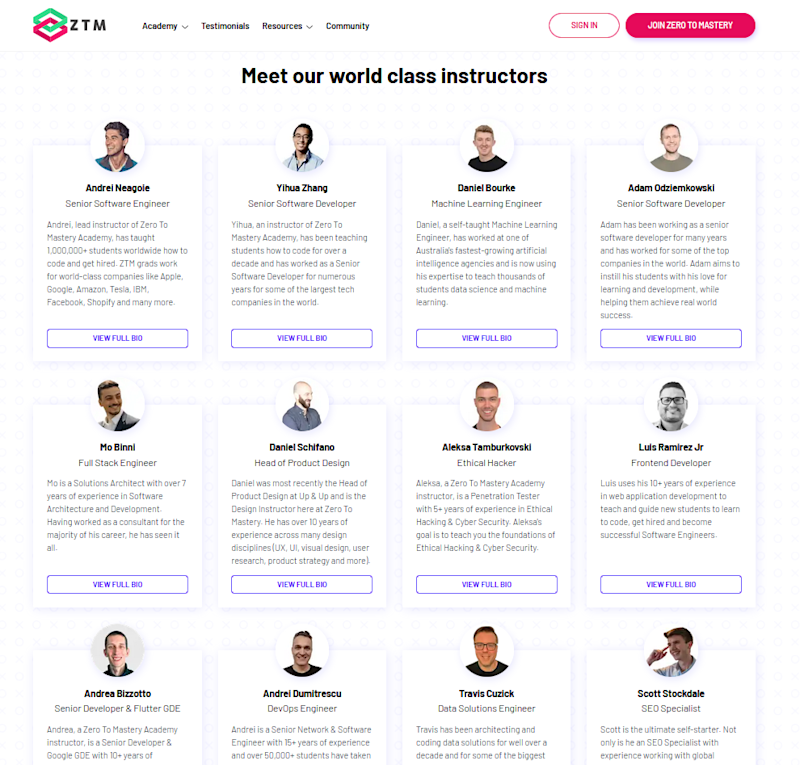
We help them to set up and record their course to meet our standards, teach them how to create and promote it, and offer recurring monthly revenue from each course sale.
This helps you to create a new income stream without having to skill up to a more senior role or learn a new language - simply by sharing what you know so far and helping people avoid common mistakes.
Simple!
You’re always going to be learning new things as a developer and that journey never really ends (even when you’re an industry veteran), but it never hurts to have new income streams either 😉.
What are you waiting for? Go make money today while you're still learning to code!
So there you have it, 10 easy ways to get paid to learn to code, no matter your current level of experience.
Which will you use?
Will you get your boss to pay you to start to learn?
Will you find a new role at a new company?
Will you do some easy freelance work, or perhaps start to offer simple, repeatable services?
The choice is yours!
Best articles. Best resources. Only for ZTM subscribers.
If you enjoyed this post and want to get more like it in the future, subscribe below. By joining the ZTM community of over 100,000 developers you’ll receive Web Developer Monthly (the fastest growing monthly newsletter for developers) and other exclusive ZTM posts, opportunities and offers.
No spam ever, unsubscribe anytime
By the way, if you want to learn both technical and non-technical skills that you need to have a successful career in the tech industry, then come join us as a member of Zero To Mastery.
